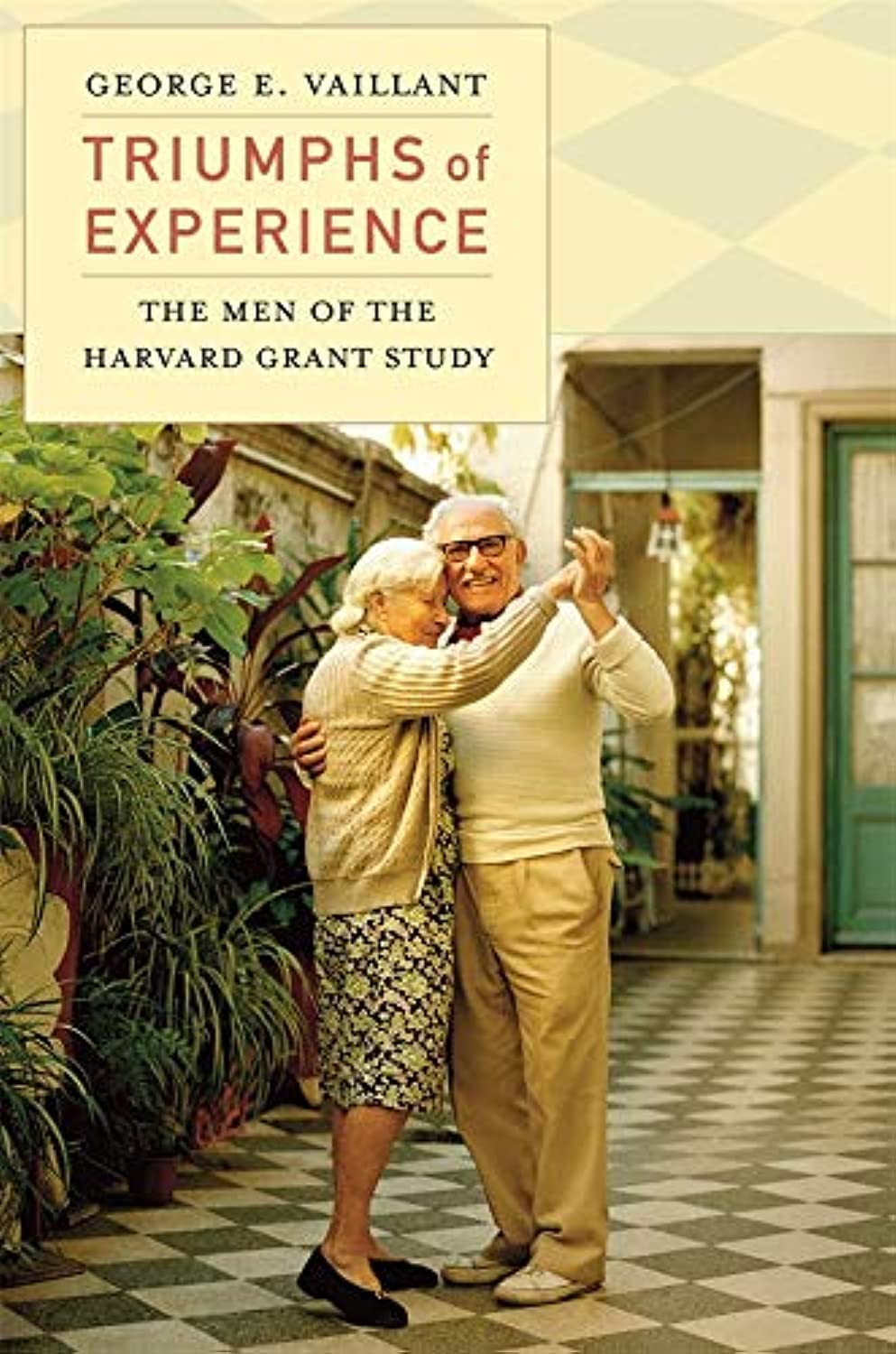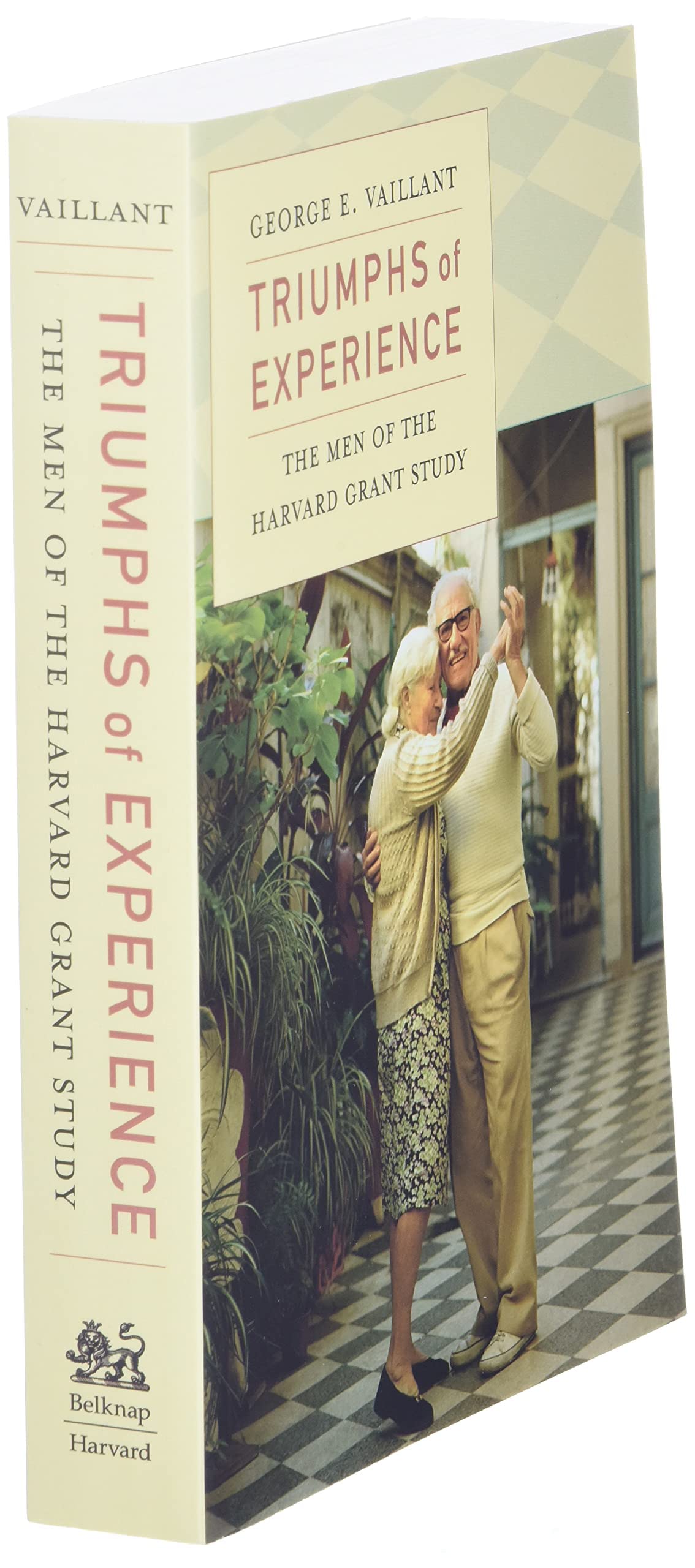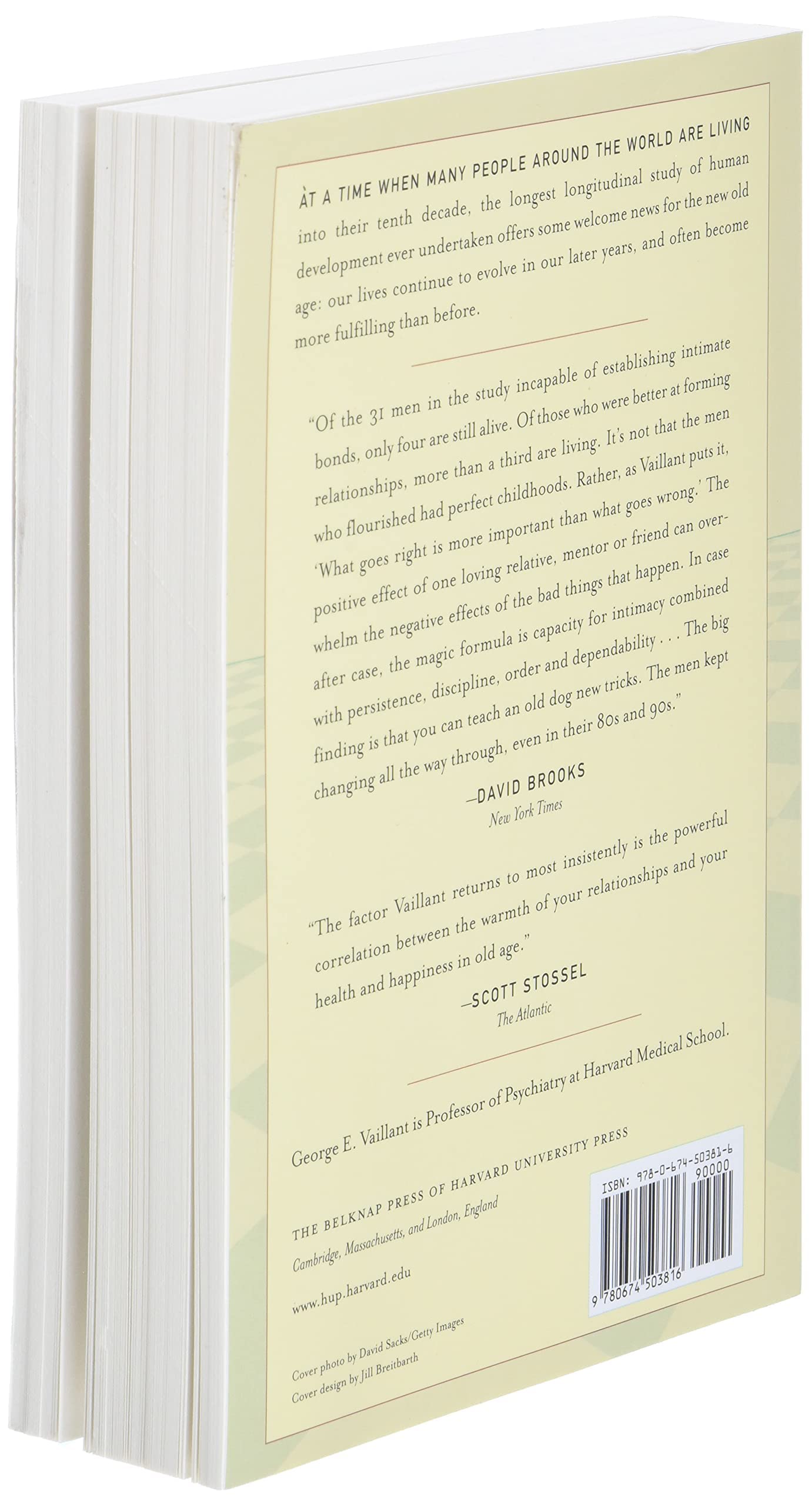





Full description not available
R**N
The Power of Longitudinal Research
Some of the oldest and most contentious debates on human beings centre around the relative influence of heredity (genetics), environment and individual voluntary action on growth and development. These include whether mental illness has genetic origins, what factors determine "success" in life, and whether adults continue to "develop" as they grow older (or whether all development happens before a certain age). These questions cross disciplinary boundaries as they involve concepts from psychology, psychiatry, sociology, and genetics.Great thinkers like Freud and Erikson made significant contributions to these debates, but many of their contributions were based on intuitive theorizing rather than rigorous empirical evidence. With time and careful research, some of their theories have been upheld, and others disproved! The studies that have made the most impact are longitudinal studies in which a carefully chosen cohort of respondents was tracked periodically over an extended period of time.The Harvard Grant StudyOne of the most well known of these studies is the Havard Grant study which commenced in the late 1930s and early 1940s and continues till this day. The survivors of the cohort (who were Harvard sophomores when they were recruited) have now entered their 90s, and the data collected therefore allows several inferences to be drawn on adult development.George F. Vaillant was the director of the Harvard Grant Study for over two decades. His latest book, The Triumphs of Experience, presents the latest findings. I found it a fascinating read as it not only uncovers new insights, but also questions some of the conclusions reached at earlier stages of the study. The Harvard Grant Study draws its conclusions from rigorous multivariate analysis, but Vaillant presents the findings with a distinctive and rare combination of statistical rigour and empathy for his subjects - in addition to tables containing the statistical results, there are profiles (disguised, of course) of different respondents of the study, and these give the reader a sense of being part of the study team.The original design and subsequent evolution of the study show how much our models of adult development have changed over time. At the time the study started, physical constitution and mental health indicators were expected to be important predictors of subsequent progress of the study. Parental/family relationships and childhood upbringing were thought to be unimportant. Yet, the latest Harvard Grant Study findings show that loving relationships during childhood are important for longevity and success in life.Findings of the Harvard Grant StudySome of the important findings of this study reported in The Triumphs of Experience:Individuals develop through their adult lives as well, not only upto the stage of adolescence.The impact of childhood trauma decreases over time; more importantly, the positive experiences of a loving childhood have enduring impact.Being well integrated and self-driving while young helps people live longer.Divorce led to happier marriages than the bottom third of sustaining marriages.Alcoholism had bigger negative impacts than measured by most previous studies. It accounted for more than half of the divorces in the Grant Study. The study shows that it is unlikely that alcoholics can return safely to social drinking, thereby upholding the methodologies followed by organizations like Alcoholics Anonymous.The involuntary coping styles predicted by Freud exist, and they are important for human effectiveness.Important Lessons for Management of Long-term Research ProgramsThe Harvard Grant Study is interesting from a research management perspective as well. Over its 70+ year lifespan so far, the study has transcended several research directors and team members, but the integrity of the study has not been compromised. George Vaillant estimates that about $ 20 million has been spent on the study over time, with an average cost of $10,000 per research paper published. The study has had different sponsors at different times, and while the study had to adapt itself to the priorities of these sponsors (such as a major retailer, cigarette company and a program against alcoholism), it still managed to sustain the collection of data related to its core research questions.With its emphasis on the choice of appropriate control variables and other related issues of study design, this book is a great primer on how to design and adapt longitudinal research studies for maximum research impact.Rishikesha Krishnan, IIM Bangalore
G**D
Resiliency in the second half of life
George E. Vaillant MD, at once both an able biographer and an eminent psychiatrist, is equally comfortable whether quoting Shakespeare, Freud, or anyone in between as he chronicles the lives of nearly 300 men from age 17 to 95. The data come from the Harvard Grant Study, a prospective study of 75 years in duration examining the factors that determine health, happiness, and success in life over the course of a human lifespan. Among the many intriguing findings is that while the influence of one's childhood is important to later health and success, it is a factor only up to around age 50. In other words, from age 50 on, the study subjects who hailed from disadvantaged or dysfunctional families "caught up to" the ones from more loving or privileged family backgrounds. After age 50 the influences of childhood wane, and our fate lies truly in our own perseverance, our healthy and sustainable habits, our personal outlook on life, and the loving relationships we create around us. Hence the book's title, "Triumphs of Experience". This is an encouraging, data-based but humanistic, read for anyone looking for validation for the belief that life can truly get better with age. I would highly recommend this book, along with Vaillant's earlier books based on findings from the Grant study, particularly the classic "Adaptation to Life", written years ago when the Harvard study subjects were only ages 50 to 60 and chronicling how individuals navigate the transition from young adulthood to midlife.
L**N
Triumphs of Experience is a trove of wonderfully interesting data
Triumphs of Experience is a trove of wonderfully interesting data. It's presented with verve and enthusiasm, though it is at heart an non-fiction affair with a very human, reasonably typical cohort. Mr. Vaillant has an obvious affection for the study and its participants. He's forthright concerning the misapprehensions and foibles that drove his own development over the course of his administration of the study, and generally engaging owing to his depth and the inevitable appeal of this sort of undertaking.The author's approach, both to the work and to his own advancing years, is optimistic regarding the process of aging. If the book suffers from his presentation in any way, it is the effort Mr. Vaillant dedicates to convincing his readers that maturity is less a process of deterioration than one of continued development that is at least as rewarding as the experience of youth. It's a rationalistic approach that is at odds with common expectations; I'm not sure he pulls it off. It's a great read at any rate, well worth the time spent as both an empirical parsing of a mountain of useful and interesting data (for cynics and materialists), and an uplifting counter to the expectation that life is less fulfilling beyond the age of fifty.
A**H
that happiness is not a simply rubricated sum or product but ...
This is arguably one of the most prolific pieces of literary triumph--of words on a page. The product of over seventy-five years of grueling work--of the theories fortified with inexorable exactness and surety; theories only to be beguiled by the infallible test of time, Triumphs of Experience provides categorical, empirical and statistical evidence for truisms bespoken in literature and philosophy since the dawn of time.The fact that we are more a product of our training in attitude rather than our training in vocabulary, or athletics; that a warm and caring mother is vastly more important than a rich one; that happiness is not a simply rubricated sum or product but is in fact a far more complicated dish than we ever thought, Vaillant seemlessly interweaves statistical and allegorical data in order to provide a beautiful, palatable yet not wholly comprehensible picture. Triumphs of Experience paints the essence of our vast and incalculable soul more clearly than ever before--Vaillant presents a masterpiece.
Trustpilot
5 days ago
2 months ago